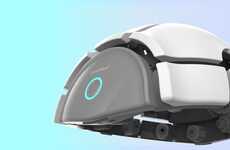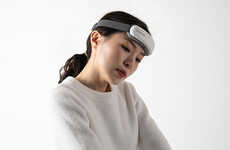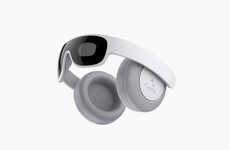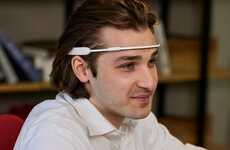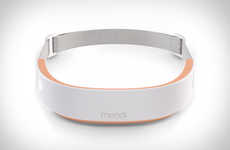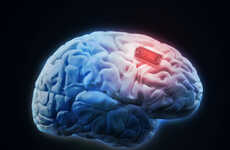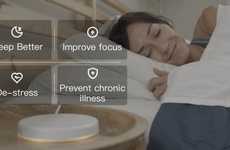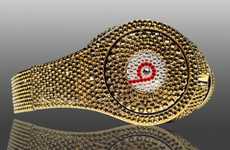
The Brainsway Helmet Uses Magnetic Stimulation to Treat Disorder
Meghan Young — January 11, 2013 — Lifestyle
The Brainsway helmet was recently approved by the United States Food and Drug Administration to help people suffering from depression. An impressive piece of technology, the Brainsway helmet provides Transcranial Magnet Stimulation in the form of electromagnetic coils to achieve lasting results.
Essentially, the Brainsway helmet works by zapping the scalp with electric pulses in order to stimulate certain areas of the brain. Conducted over a period of several weeks, each treatment lasts for about 15 to 30 minutes. Clinical trials of this non-invasive treatment is currently underway with no reported side effects aside from slight buzzing sensation immediately after the sessions.
The Brainsway helmet could also be used to on patients with bipolar disorder, schizophrenia, Parkinson’s diseases and PTSD.
Essentially, the Brainsway helmet works by zapping the scalp with electric pulses in order to stimulate certain areas of the brain. Conducted over a period of several weeks, each treatment lasts for about 15 to 30 minutes. Clinical trials of this non-invasive treatment is currently underway with no reported side effects aside from slight buzzing sensation immediately after the sessions.
The Brainsway helmet could also be used to on patients with bipolar disorder, schizophrenia, Parkinson’s diseases and PTSD.
Trend Themes
1. Transcranial Magnet Stimulation - There is a growing trend in the use of transcranial magnet stimulation to treat mental health disorders, creating opportunities for businesses to develop innovative treatment technologies.
2. Non-invasive Depression Treatment - The trend towards non-invasive depression treatments is creating opportunities for businesses to develop alternative treatment methods that are less stigmatized and more accessible to mental health patients.
3. Personalized Mental Health Treatment - The trend towards personalized mental health treatment options is creating opportunities for businesses to develop treatments that are tailored to individual patients' specific needs and conditions.
Industry Implications
1. Medical Equipment Manufacturing - The development and manufacturing of innovative medical equipment, such as the Brainsway helmet, presents a disruptive innovation opportunity for businesses in this industry.
2. Mental Health Treatment Centers - The trend towards non-invasive and personalized mental health treatments creates an opportunity for treatment centers to offer innovative and alternative therapies to their patients.
3. Pharmaceuticals - The trend towards non-invasive depression treatments presents an opportunity for pharmaceutical companies to develop new drugs and therapies that can be used in conjunction with non-invasive treatments for optimal patient outcomes.
1.3
Score
Popularity
Activity
Freshness

